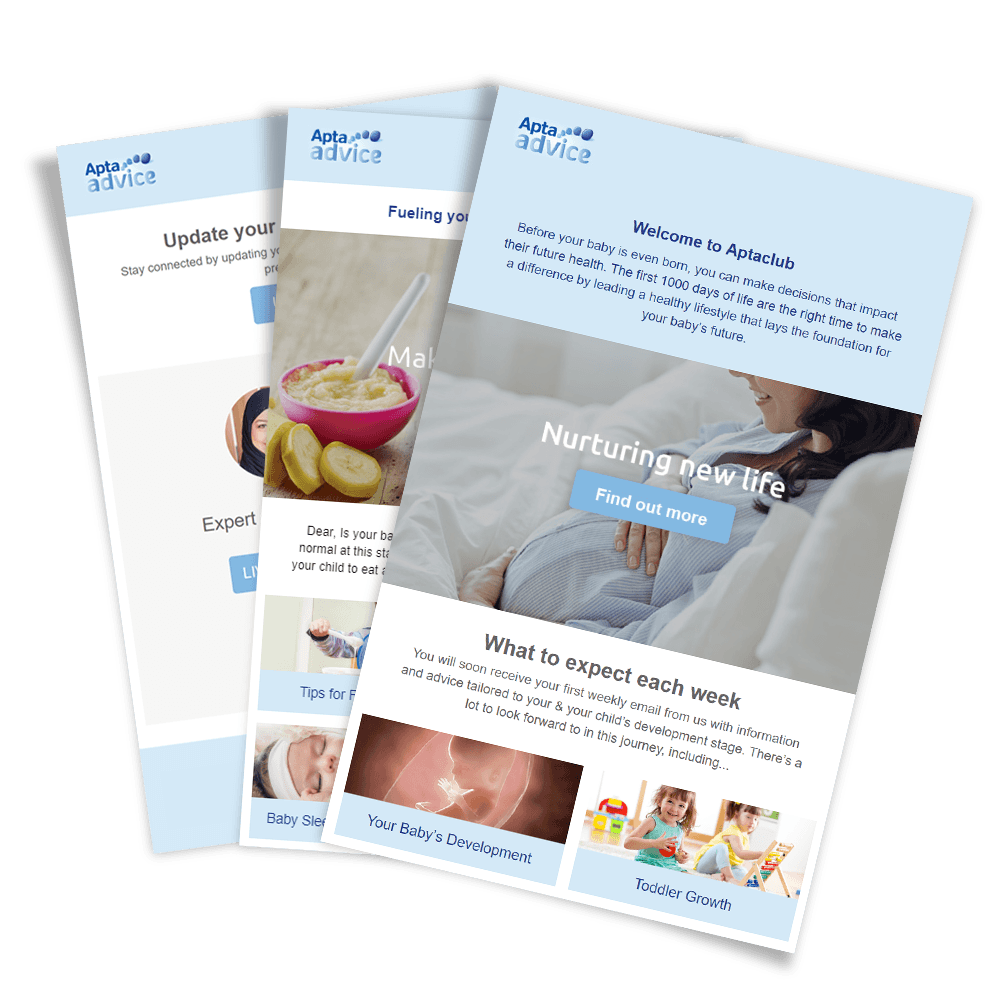Building immunity

A strong immune system provides your child with natural defences against disease. Read on for tips to help you boost their immunity and give your baby’s immune system all the support it needs.
Your baby’s immune system is complex and develops as they grow. Studies have shown that certain factors, such as being born naturally and being breastfed can improve their immunity. For example, babies who are born naturally via the birth canal are exposed to their first batch of natural bacteria which kick-starts their immune system. However, babies who are born via Caesarean Section (C-Section) encounter an entirely different kind of hospital bacteria and this has been associated with a greater risk of developing allergies.
Of course, not all mothers have the choice of a natural birth, but even if your baby is born via C-Section their immune system will be strengthened through the prebiotic oligosaccharides naturally present in breastmilk that increase the friendly bacteria in a baby’s gut. And if you’re not breastfeeding, some infant milks also contain levels of prebiotic oligosaccharides. Read on to learn more about the beneficial effect of breastmilk and how, if you’re not breastfeeding, you can ensure your baby’s immune system still receives the support it needs.
A natural birth has natural benefits
Two thirds of the immune system is contained in the gut, as this is the most common entry point for potentially harmful bacteria. During pregnancy, your baby’s gut is sterile and they are only protected from illness and infection by your own antibodies which travel across the placenta. This is known as ‘passive’ immunity. Early ‘education’ of the immune system starts in the womb and continues throughout life, particularly during the first 2 years. During a natural delivery, your baby’s journey through the birth canal exposes them to your bacteria, which colonise the gut and help kick start your baby’s immune system, encouraging the development of an ‘active’ state.
You may be advised to have a caesarean if you are carrying a large baby or they are in breech position; in these cases, delivery by C-Section will help keep both you and your baby safe. At some hospitals, you can elect to have a caesarean but not all hospitals give you the choice.
If you have a C-Section, your baby is delivered straight from your uterus through an incision across the base of your bump. Since their first contact with bacteria is that of the hospital surroundings rather than through your birth canal, there is research which suggests that babies born by caesarean section tend to have lower levels of friendly bacteria in the gut than those babies born naturally, and may be at increased risk of allergies and diarrhoea. However, the benefits of a C-Section, where a natural birth may be risky, far outweigh the possible disadvantages.
The protective qualities of breastmilk
As well as providing all the nutrients your baby needs for healthy growth and development, breastmilk contains special nutrients called prebiotic oligosaccharides that encourage the friendly bacteria in your baby’s tummy to flourish.
Prebiotic oligosaccharides are the preferred food for friendly bacteria, helping to support the body’s natural defences. They also contribute towards better digestion, which has the positive effect of making your baby’s stools softer, and therefore likely to be easier to pass.
If you are unable to breastfeed or have chosen not to, you can still provide this friendly boost by choosing a milk that contains prebiotic.
If you have already started to use formula that doesn’t contain prebiotic oligosaccharides, you can still increase your baby’s levels of friendly bacteria by introducing a formula that does. Here at Apta-advice, we believe that breastfeeding is best and beneficial for babies. It’s always worth remembering that combination feeding will reduce your breast milk supply, and once you’ve stopped breast feeding, you can’t change your mind. If bottle feeding, make sure you follow the instructions.
If you have any questions about feeding your baby, or preparing for and maintaining breast feeding, contact our Careline team for advice on 800 6458 6262 (UAE)/ +971 4 420 9489 (Other countries) between the hours of 9am and 6pm Saturday to Thursday.
Related Articles

Join Aptaclub
Get week-by-week updates on your baby’s development and your pregnancy. Receive expert advice, postal packs for your stage and much more

Know your baby’s
due date
When was the first day of your last
menstrual period?
Know your baby’s
due date
RESULT Estimated due date (40 week full term)
Need advice?
Our team of experts is ready to answer your questions and support you on your journey from pregnancy to toddler hood. For more information and relevant advice, please contact us between 9am-6pm from Sunday to Friday.




